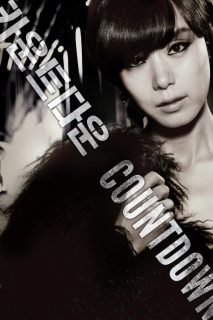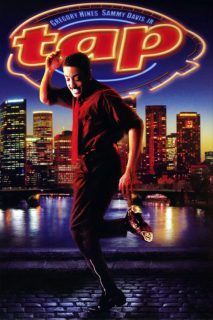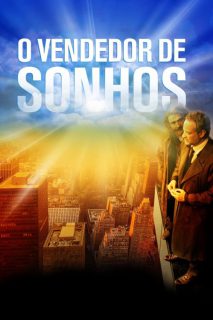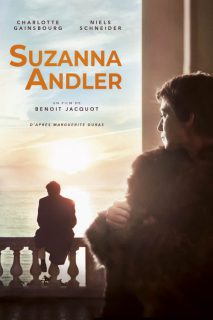
- Year: 1997
- Released: 19 Oct 1997
- Country: United Kingdom
- Adwords: 4 nominations
- IMDb: https://www.imdb.com/title/tt0119404/
- Rotten Tomatoes: https://www.rottentomatoes.com/m/jane_eyre
- Metacritics: https://www.metacritic.com/movie/jane-eyre
- Available in: 720p, 1080p,
- Language: English, French
- MPA Rating: Not Rated
- Genre: Drama, Romance
- Runtime: 108 min
- Writer: Charlotte Brontë, Kay Mellor
- Director: Robert Young
- Cast: Deborah Findlay, Laura Harling, Joanna Scanlan
- Keywords: based on novel or book, period drama, costume drama,
 | 7.0/10 |
Jane Eyre Storyline
Charlotte Bronte’s classic novel is filmed yet again. The story of the Yorkshire orphan who becomes a governess to a young French girl and finds love with the brooding lord of the manor is given a standard romantic flare, but sparks do not seem to happen between the two leads in this version.
Jane Eyre Photos



Jane Eyre Torrents Download
| 720p | web | 989.35 MB | magnet:?xt=urn:btih:CF83ED92AB6F8665A8BF600FC8685BED52F89A48 | |
| 1080p | web | 1.79 GB | magnet:?xt=urn:btih:217EC7F7785C9E7C7BBF8864DB3DB2B4B778E19A |
Jane Eyre Subtitles Download
| Arabic | subtitle Jane.Eyre.DVDrip.1997- | ||
| Spanish | subtitle Jane Eyre 1997 DVDrip DivX 25fps |
Jane Eyre Movie Reviews
So many reviews miss the point
Many reviewers loved this version; many hated it. And that is exactly as it should be. There are many possible interpretations of good literature, just as every person’s character has many different facets. Versions of Shakespeare’s plays have been enacted for hundreds of years and still every version represents something different about humankind, especially if there is innovation in the production, script or acting.
I first read Jane Eyre when I was about 8, nearly 60 years ago. It was the first book I ever cried over and it’s fair to say that was part of my emotional development. I have read it many times and seen many filmed versions since – and I still love it, simply because it is fresh every time as different aspects reveal themselves – either because they are in the book or because the book resonates differently with me as I change.
So please open your mind when you watch this – and other – versions of the Bronte books. In my view it is not perfect, but few productions ever are. Even so, it was interesting, enjoyable and a joy to watch.
Too rushed, too much missing, characterisation didn’t fit the book.
I am an unforgiving purist and my favourite version of Jane Eyre has to be the BBC version with Timothy Dalton playing Rochester as an attractive, witty, sensitive, firm and fascinating man. Edward Rochester is one of fiction’s greatest romantic heroes and Ciaran Hinds played him as a selfish bully to whom I had difficulty believing Jane would have been attracted. There wasn’t enough time to show the development of their friendship, so Jane’s love appeared unconvincing. In fact, I felt that taken at face value, this Jane would only have loved this Rochester because she had no previous experience with men and was pushed into it. The truth of their relationship as written in the novel is completely different: that of mutual respect and understanding, as two solitary people often misunderstood by others but who become soul mates. This is what draws me to the book and why I often feel dissatisfied with adaptations. The development of Jane Eyre as a person is its most important theme – she has a deprived and abused childhood and only by finding Thornfield and its inhabitants is she allowed to blossom. One important thing missing here was Jane’s financial independence at the end, which emphasises her real status and voluntary return to Rochester. I also didn’t like the re-writing of almost all the dialogue, because Charlotte Bronte’s original text is wonderful and more evocative. I don’t believe it is possible to do justice to this unique story in any adaptation of this length – only a multi-part mini series can give enough time to fill in all the important details. I look forward to the latest BBC version with Toby Stephens as Rochester!
Above all, read the book!
At least they got Pilot right!
This 1997 TV production is called “Jane Eyre”, but except for a similarity to the plot of the novel there is preciously little in this film to remind you that you are indeed watching an adaptation of Charlotte Brontë’s literary masterpiece. How they managed to get every single character of the novel wrong – except for Pilot, who is well cast – is a complete mystery to me, but they did. This is the more a pity because with Samantha Morton and Ciaràn Hinds they had two good actors, who even physically fit their roles well, but, alas, the greatest talent is of no avail when the concept of the characters is as wrong as in this adaptation. Samantha Morton – young, delicate and plain enough – looks like Jane Eyre, but does not play Jane Eyre. Her Jane is far too bold, even disrespectful at times, self-confident and self-satisfied, bossy and pert. Gone is the interesting duality of Jane’s character in the novel, her outward shyness, guardedness and modesty on the one hand and her fire and passion on the other. Morton’s Jane speaks her mind boldly right from the beginning and never stops doing so throughout the film. There is no subtlety in her performance, her Jane undergoes no change and no development. The same is sadly also true for the character of Mr. Rochester. Believe it or not, but they indeed managed to turn one of the most interesting and complex figures of English literature into a brute and a bully. Luckily Ciaràn Hinds possesses some charisma, but otherwise nothing links him to the eloquent and fascinating character of the novel. Not the slightest attempt was made to explore the depths of Rochester’s character, his many contradicting facets, his moodiness, his inner struggle, his humour and his tenderness. The Rochester of the novel is admittedly insolent and harsh at times, but never the unrefined, snarling brute Ciaràn Hinds makes him. Yet Hinds is even worse at playing the loving Rochester, and the only feeling he manages to convey is lust.
Unfortunately the misrepresentation of the characters is not limited to the leading roles: Blanche, besides being blonde, is not in the least haughty enough, not to mention the fact that she is nice to Adèle, St. John is all smiles and kindness, and the role of Mrs. Fairfax has been unnecessarily puffed up, probably due to the fact that she is played by dear Gemma Jones. Yet some scenes less with Mrs. Fairfax fussing around and some scenes more between Jane and Rochester would have been very helpful to make the audience understand why the two latter fall in love in the first place.
As far as language is concerned this production is another victim of the delusion of some scriptwriters who either think that they can improve on Charlotte Brontë’s brilliant language or that her 19th century English has to be simplified to become digestible for a modern audience. The result is that the dialogues are severely changed or replaced by the scriptwriter’s own banal lines. In either case they have lost all the charm, sparkle and brilliance of the dialogues in the novel. Poor misguided scriptwriter Richard Hawley even deemed it necessary to make Rochester introduce one of his most famous lines – the line about the string that inextricably binds Jane and him together – with the words: “I know it may sound silly but….” No, Mr. Hawley, if somebody sounds silly here, it is definitely NOT Charlotte Brontë! Another capital error of judgement – and unfortunately also an insult to good taste – is the way they rewrote the farewell scene between Jane and Rochester after the aborted wedding, a scene, by the by, which in all the modern adaptations has received a particularly brutal treatment. Whereas in the latest Jane Eyre production of 2006 that scene was an outrage to Charlotte Brontë’s Jane, the way the scene is handled in this adaptation is an outrage to Charlotte Brontë’s Rochester. What? Rochester insulting Jane when she intends to leave him, bullying her, throwing her suitcase over the banister and telling her to go if she does not love him enough to stay? Absolutely ridiculous! It is hard to imagine what has gotten into the filmmakers to produce such rubbish as this.
This is the worst, but there are many others scenes which are similarly absurd and ludicrous: the first scene of Rochester galloping in slow motion through the mist before he falls into a brook, Grace Poole coming out of the lunatic’s room to sniff at Mason’s wounds like a wild beast, Rochester sitting on the top of an archway of Thornfield as if he were the court jester and Mason jumping on horseback over the church fence to prevent a marriage of which he has heard only heavens knows how.
Equally lamentable is the filmmakers’ inability to represent the correct social behaviour of the 1850ies. Rochester and Jane are far too disrespectful to each other at first and later far too hot. Sentences like “I feel that your passions are aroused” are appropriate for “Sex in the City”, but not for a costume drama, let alone Jane Eyre. Obviously the filmmakers decided not to bother at all – neither about being true to the novel, nor about portraying the novel’s era accurately. The result is a sad failure – both as a film and an adaptation of Jane Eyre. The only fact with which the makers of this Jane Eyre can console themselves is that the BBC failed even worse in the subsequent production of Jane Eyre in 2006.



